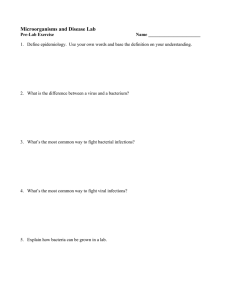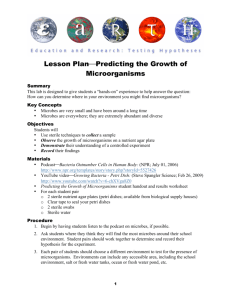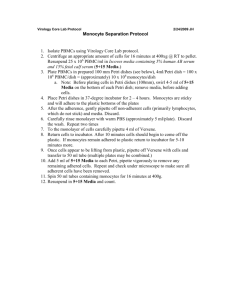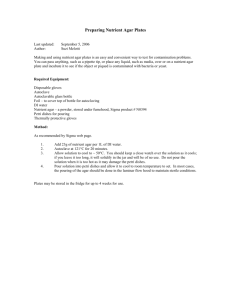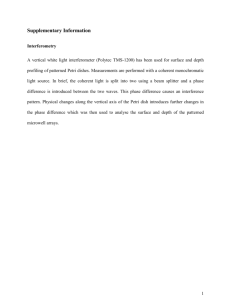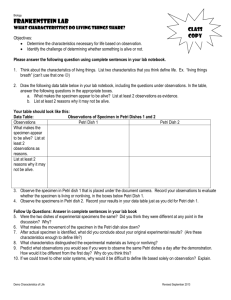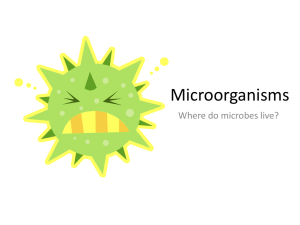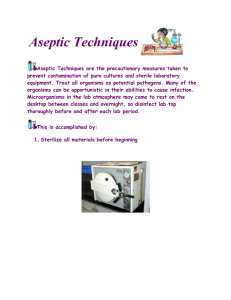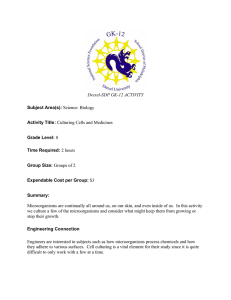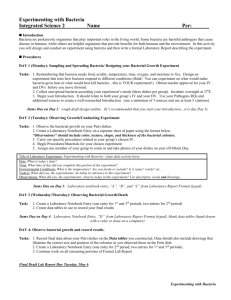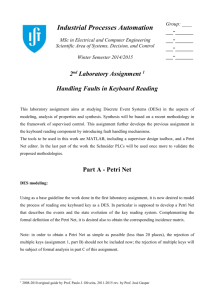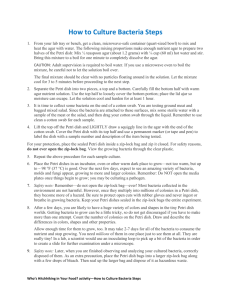Practical microbiology
advertisement
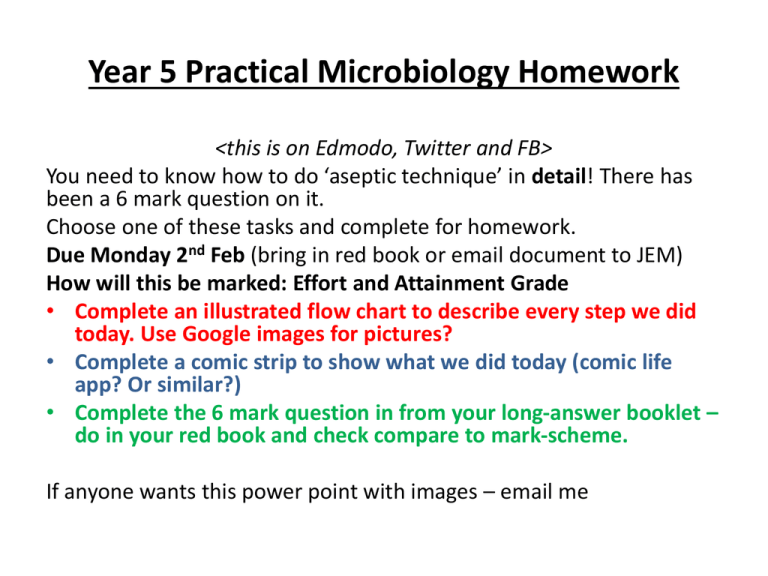
Year 5 Practical Microbiology Homework <this is on Edmodo, Twitter and FB> You need to know how to do ‘aseptic technique’ in detail! There has been a 6 mark question on it. Choose one of these tasks and complete for homework. Due Monday 2nd Feb (bring in red book or email document to JEM) How will this be marked: Effort and Attainment Grade • Complete an illustrated flow chart to describe every step we did today. Use Google images for pictures? • Complete a comic strip to show what we did today (comic life app? Or similar?) • Complete the 6 mark question in from your long-answer booklet – do in your red book and check compare to mark-scheme. If anyone wants this power point with images – email me Growing microorganisms in Petri dishes to demonstrate sterile technique and growing pure cultures Aim – to transfer E.coli from culture medium to petri dish without contamination Lawn of bacteria What is in the petri dish? • Agar = jelly • Growth medium: – Nutrient agar – Blood agar etc the use of pre-inoculated agar in Petri dishes to evaluate the effect of disinfectants and antibiotics Aim: to add samples of antibiotics or disinfectants to the bacterial lawn to see which is the most effective at killing bacteria Antibiotics: X8 Allergies! Disinfectants: Savlon Virkon Hydrogen peroxide Sterile water Sealing & labelling your dishes The lid of the Petri dish should be secured with adhesive tape to prevent microorganisms from the air contaminating the culture. Label Tiny writing around edge! On base Initials, date, contents Practise table drawing for controlled assessment Growing microorganisms In school and college laboratories, cultures should be incubated at a maximum temperature of 25 °C, which greatly reduces the likelihood of growth of pathogens that might be harmful to humans. In industrial conditions higher temperatures can produce more rapid growth. Specification m) Uncontaminated cultures of microorganisms are required for investigating the action of disinfectants and antibiotics. For this: • Petri dishes and culture media must be sterilised before use to kill unwanted microorganisms • inoculating loops used to transfer microorganisms to the media must be sterilised by passing them through a flame • the lid of the Petri dish should be secured with adhesive tape to prevent microorganisms from the air contaminating the culture. n) In school and college laboratories, cultures should be incubated at a maximum temperature of 25 °C, which greatly reduces the likelihood of growth of pathogens that might be harmful to humans. o) In industrial conditions higher temperatures can produce more rapid growth. • Suggested ideas for practical work to develop skills and understanding include the following: • investigate the effectiveness of various antibiotic discs in killing bacteria • growing microorganisms in Petri dishes to demonstrate sterile technique and growing pure cultures • the use of pre-inoculated agar in Petri dishes to evaluate the effect of disinfectants and antibiotics •
